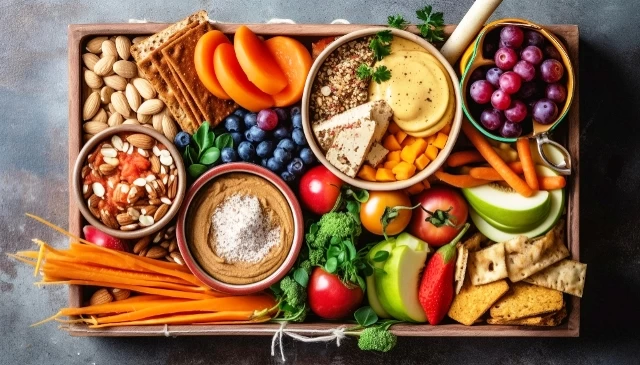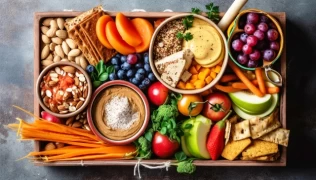
Foods and Diet Tips to Reduce Edema
- Foods and Diet Tips to Reduce Edema
- Edema-Reducing Fruits
- Edema-Reducing Vegetables
- Edema Reduction Tips
Edema is the result of excessive fluid retention in the body, leading to swelling and discomfort. So, what are some foods and dietary methods that may help you reduce edema?
Edema-Reducing Fruits
Fruits with high water content and diuretic properties can help reduce edema. Here are some fruits that may help you reduce edema:
- Pineapple: Pineapple contains an enzyme called bromelain, which makes it a top choice for reducing edema. Consuming fresh pineapple or drinking pineapple juice can be beneficial. Pineapple, which also helps eliminate cellulite, supports the immune system and collagen production due to its high vitamin C content.
- Kiwi: Kiwi is especially rich in vitamin C and is a lesser-known diuretic that can help reduce edema. The protein substance in kiwi helps cleanse toxins from the body while reducing edema.
- Watermelon: Watermelon is known for its high water content and natural diuretic property called citrulline, making it an effective choice for reducing edema.
- Cantaloupe: Cantaloupe also aids in reducing edema due to its high water content.
- Grapes: Grapes act as a natural diuretic and support the process of reducing edema. You can consume fresh grapes or grape juice.
- Lemon: Lemon juice is a diuretic that helps eliminate toxins from the body. Drinking lemon juice with warm water in the morning enhances this effect.
- Strawberries: Strawberries are rich in vitamin C and have antioxidant properties that can help reduce edema.
- Cherries: Cherries are known for their diuretic properties. Cherry stems are also diuretic and can be boiled and consumed for this purpose.
- Banana: Bananas are known for their potassium content, which helps regulate fluid balance in the body.
Edema-Reducing Vegetables
There are also some vegetables that can help reduce edema:
- Cucumber: Cucumbers have high water content and are low in calories, making them effective in reducing edema. You can slice cucumbers or incorporate them into salads as desired.
- Parsley: Parsley is a natural diuretic known to reduce bloating and eliminate edema. It's rich in vitamin C and can be used in salads or as a garnish. You can also steep parsley in water overnight and drink a glass on an empty stomach in the morning.
- Celery: Celery is a natural diuretic that helps remove excess fluid from the body. You can eat celery stalks raw or cooked.
- Red Bell Pepper: Red bell peppers are high in vitamin C and, due to their antioxidant properties, can help reduce edema.
- Spinach: Spinach is a magnesium-rich vegetable, and magnesium is believed to contribute to the process of reducing edema. You can use spinach in salads or as a side dish.
By incorporating these fruits and vegetables into your diet, you can help regulate fluid balance and accelerate the process of reducing edema. Additionally, it's important to maintain a balanced diet while consuming these foods.
After discussing fruits and vegetables separately, I'd like to mention some tips that may support edema reduction.

Edema Reduction Tips
- Hydration: Adequate water intake is crucial in the edema reduction process. Maintaining your body's water balance is vital for reducing edema. Water also helps cleanse your kidneys and eliminate toxins. Aim to drink at least 8-10 glasses of water daily.
- Yogurt Consumption: Probiotics in yogurt strengthen your immune system and help detoxify your body.
- Limit Salt Intake: Excessive salt intake can lead to fluid retention. Reducing salt in your diet is important to prevent edema. Avoid processed foods and try to add less salt to your meals.
- Herbal Teas: Herbal teas like fennel and especially green tea have diuretic effects and can help reduce edema. If you don't have high blood pressure, you can consume green tea leaves steeped in water with a bit of lemon for added flavor.
- Exercise: Regular exercise improves circulation and stimulates the lymphatic system, which helps reduce edema. Gentle activities like walking or yoga are effective in reducing edema.
- Epsom Salt Baths: A warm Epsom salt bath enhances the circulation of subcutaneous fluids and reduces edema. However, it's important to consult your doctor before using this method.
Remember that edema can sometimes be a sign of serious health issues, so if you consistently experience edema or have severe edema, it's important to consult a healthcare professional.

Ravza Köse, RD
Dietitian and Nutrition Specialist





